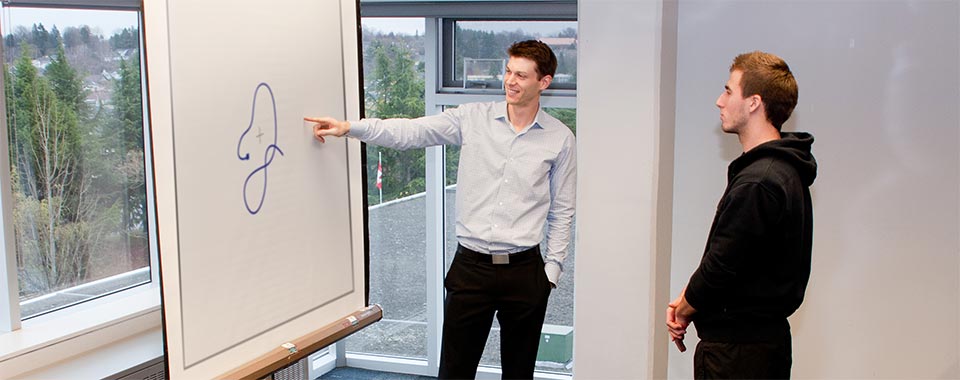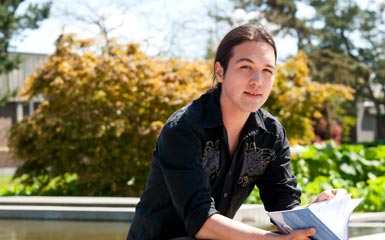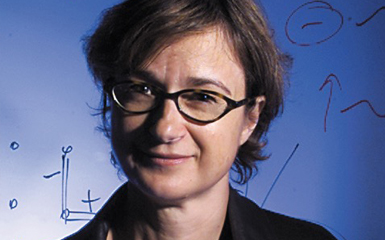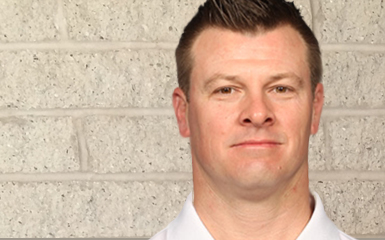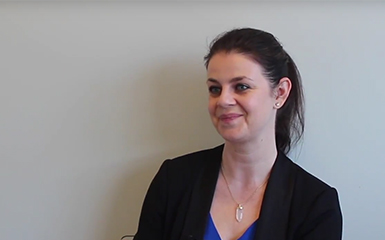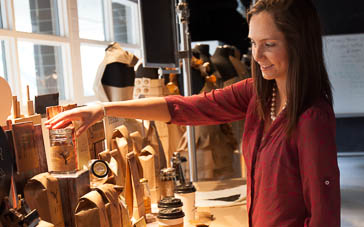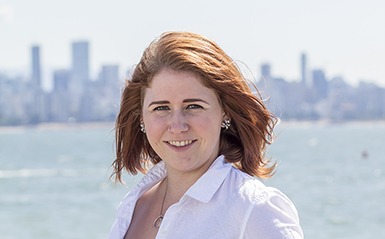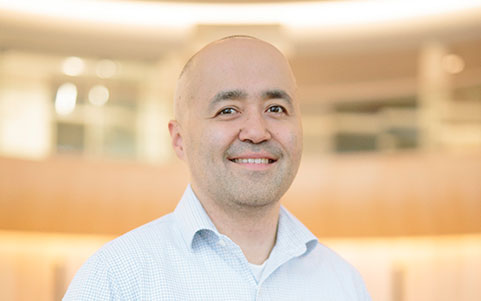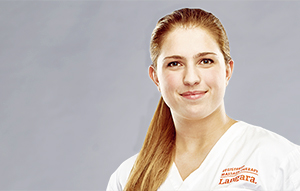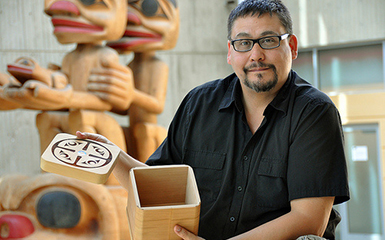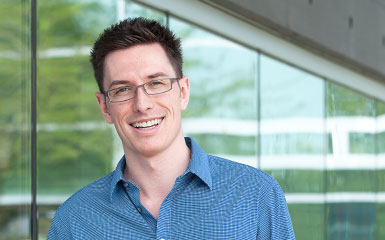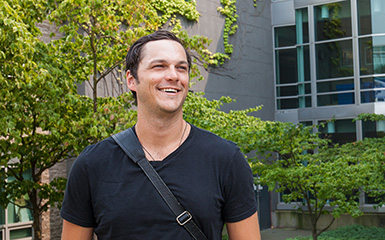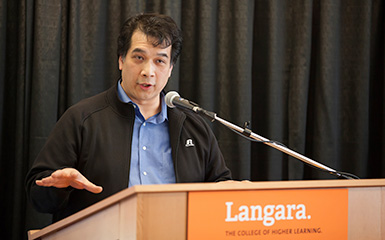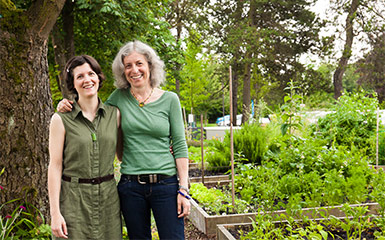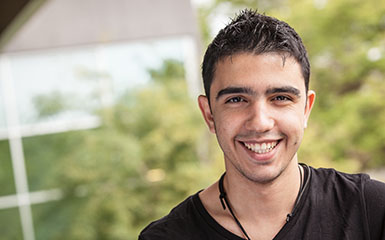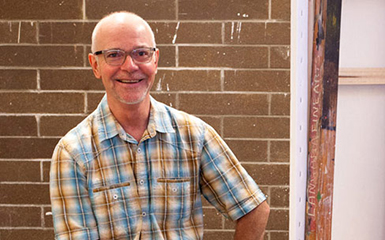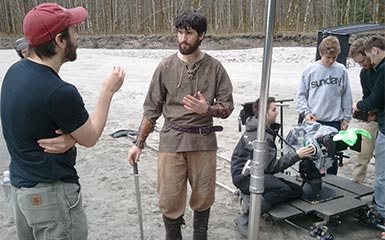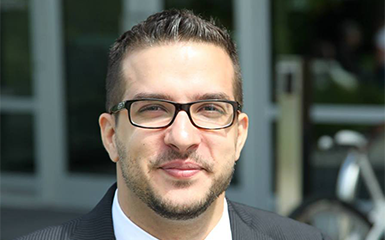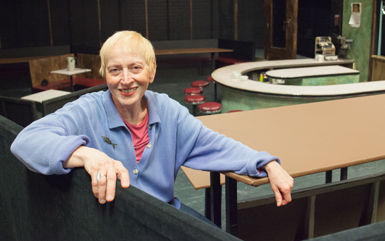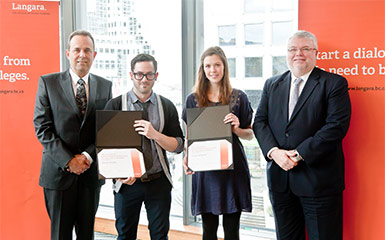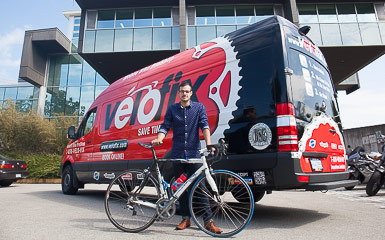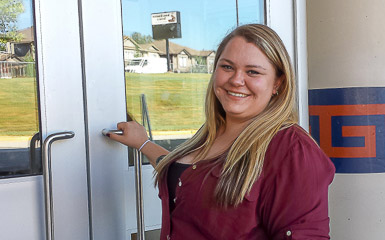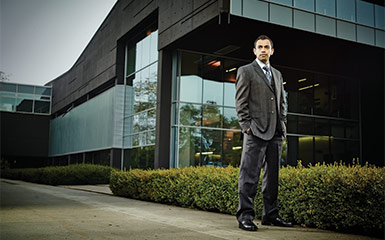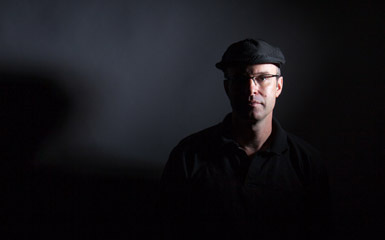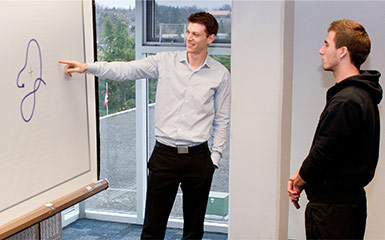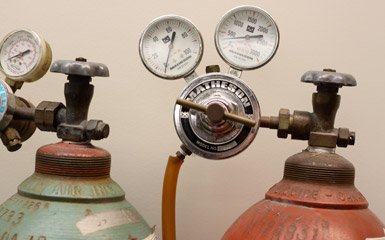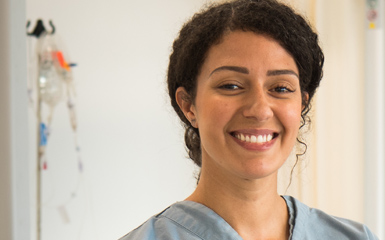Balancing research.
Ryan Cawsey, Kinesiology Instructor, Faculty
Ryan Cawsey is passionate about making a positive impact on health care in British Columbia. A kinesiology instructor at Langara, Cawsey is working on a research project that involves using visual feedback to improve postural control during quiet ‘standing balance’.
Even when standing still, our center of mass moves slightly, causing us to lose our balance; small adjustments need to be made constantly to prevent a fall. We often aren’t consciously aware of these adjustments, but the ability to make them is impaired in many individuals with vestibular or neurological disorders.
Cawsey’s research participants were asked to stand on a ‘force platform,’ a device that can be used to determine the center of pressure beneath the participants’ feet. While remaining as still as possible, the participants were shown a real-time, magnified image of the center of pressure beneath their feet. When provided with the visual feedback, the participants were better able to reduce the movements of their center of pressure, suggesting an increase in postural control.
"Possibilities exist for augmented visual feedback, such as this, to be used as a training tool to increase postural control in populations that are susceptible to falls, such as the elderly, those with Parkinson’s Disease, or those who have suffered a stroke. This therapy may also be used by athletes who have suffered a musculoskeletal injury, such as a sprained ankle, to regain their balance sooner after the initial trauma of the injury has subsided."
Cawsey is also testing new technologies in lower-limb prostheses to improve the quality of life of amputees. In collaboration with Barber Prosthetics Clinic, and with funding from the Vancouver Foundation and the British Columbia Applied Research and Innovation Network (BCARIN), he is studying the benefits of a device called a ‘torsion adapter,’ which would allow prosthetics to twist, relieving pressure and lessoning the friction on tender limbs. The device can help the user walk in a more natural way, making the use of a prosthetic limb less conspicuous.
"Langara’s collegial environment provides many opportunities for collaboration in health-related research. Developing Langara as a center of excellence in applied research provides our students with valuable research experiences and fosters innovative solutions to the challenges facing our communities."
See related stories:
Share this story Tweet about this
Posted on: June 6, 2014
